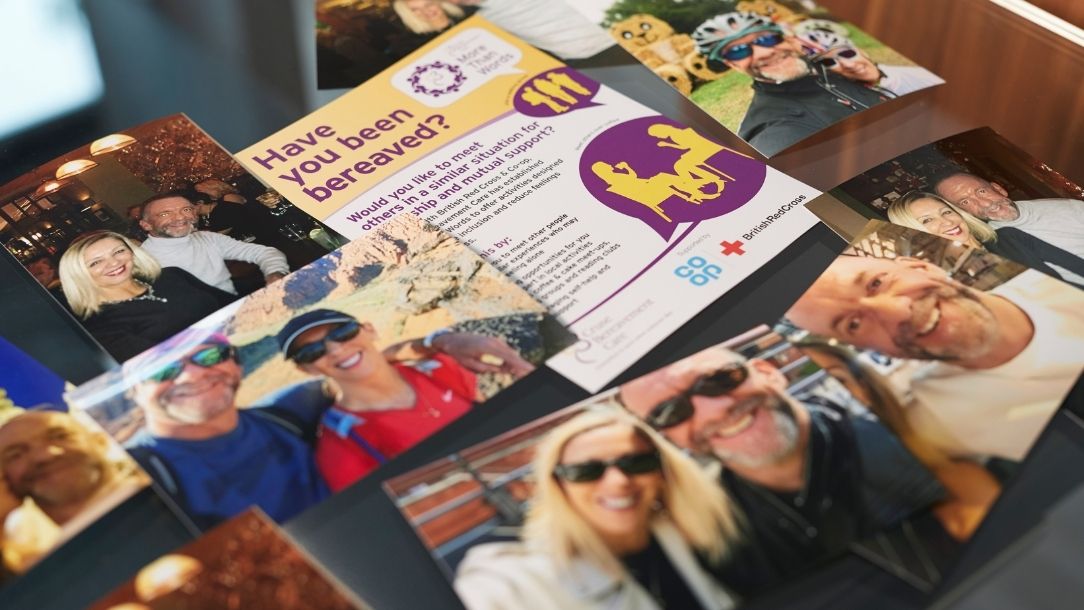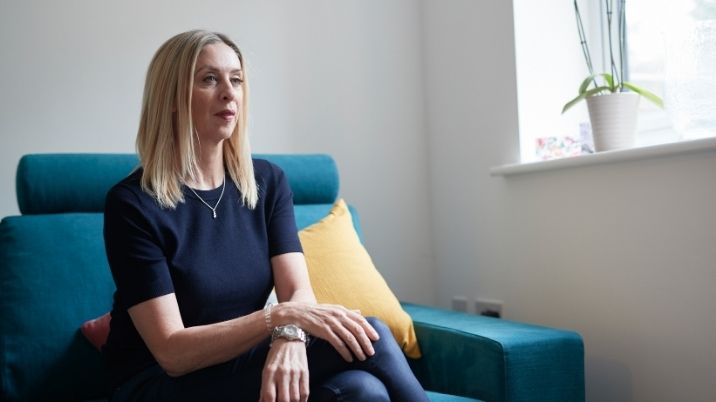Sarah helps others cope with grief after the death of her partner
Last updated 9 December 2022
When Sarah Sweeney’s partner Graham died suddenly while they were on holiday, she was plunged into terrible grief. Now, she plans to use her experience to help others who feel alone after the death of a loved one.

Sarah and Graham.
“I lost my partner, Graham, five months ago while we were on holiday,” Sarah said.
“It was completely unexpected. ‘Devastation’ doesn’t even come close, there just aren’t the words to really explain or understand this.
“He was 52 years old and I am 53. We were so active, young at heart, sporty and adventurous. We lived life to the max. We thought we had the rest of lives ahead of us.”
Sarah suddenly had to learn to live without Graham.
From being an outgoing person who planned to spend the rest of her life with the man she loved, Sarah began to dread the weekends. This was the time they used to spend together.
“The death of my partner has changed me,” Sarah said. “Many of the things that I used to do without even thinking about it – cycling, going to the gym, going out for dinner or to the local coffee shop – I avoided.
“It is so easy to become completely isolated.”
More than Words: making connections after someone close to you dies
Sarah found a bereavement counsellor and contacted Cruse Bereavement Care to help her handle her pain and grief. “I think any support for bereaved people is invaluable,” she shared.
Cruse Bereavement Care supported her through More than Words, which was set up in collaboration with the British Red Cross and our partners the Co-op. It is part of the Connecting Communities programme to help tackle loneliness across the country.
More than Words connects those who have lost someone with other bereaved people in their local area through free social groups.
The groups are open to people of any age and affected by any kind of bereavement. Members can take part in local activities matched to their interests such as coffee and cake meetups, walking groups and reading clubs.
Spending time with people who also have first-hand experience of what it feels like after losing someone can be very helpful when bereaved people feel alone.
“There is something comforting about being around others who have some understanding of a shared situation,” Sarah said.
“I don’t feel qualified to give advice on what anyone else can do but I can share my experience from a common ground.”
Becoming a More than Words champion
More than Words works through champions – volunteers who help run groups in their areas.
Sarah decided to become a More than Words champion to help others going through grief and isolation.
“For me, I want to channel some of my energy into doing something positive that could help and support other people,” she said.
“It is about being able to share thoughts and feelings, in a safe environment, with others who have experienced loss.”
Volunteers also help in other ways, such as joining a group, administration or fundraising.
Being part of More than Words has helped Sarah to meet new people and, she hopes, it will help her deal with the times she feels “that awful loneliness”.
“When I went to the More than Words workshop, as the day started it was a little uncomfortable. But by lunch people had loosened up and started sharing their stories.
“We were able to build up a rapport because we could recognise parts of ourselves in each other’s situation.”

Sarah at home.
Anyone can feel lonely
Red Cross loneliness services work from the belief that being or feeling alone can have a devastating affect on people’s health and wellbeing. This can then have an impact on communities, hospitals and other public services.
“I knew I had to do something to stop becoming lonelier and more isolated because that is a dangerous place,” Sarah said.
“I think lot of people may think that elderly people are the ones mostly affected by loneliness, but this is not the case.
“People of all ages can feel lonely when something like this happens. It affects everyone differently but it can affect anyone.”